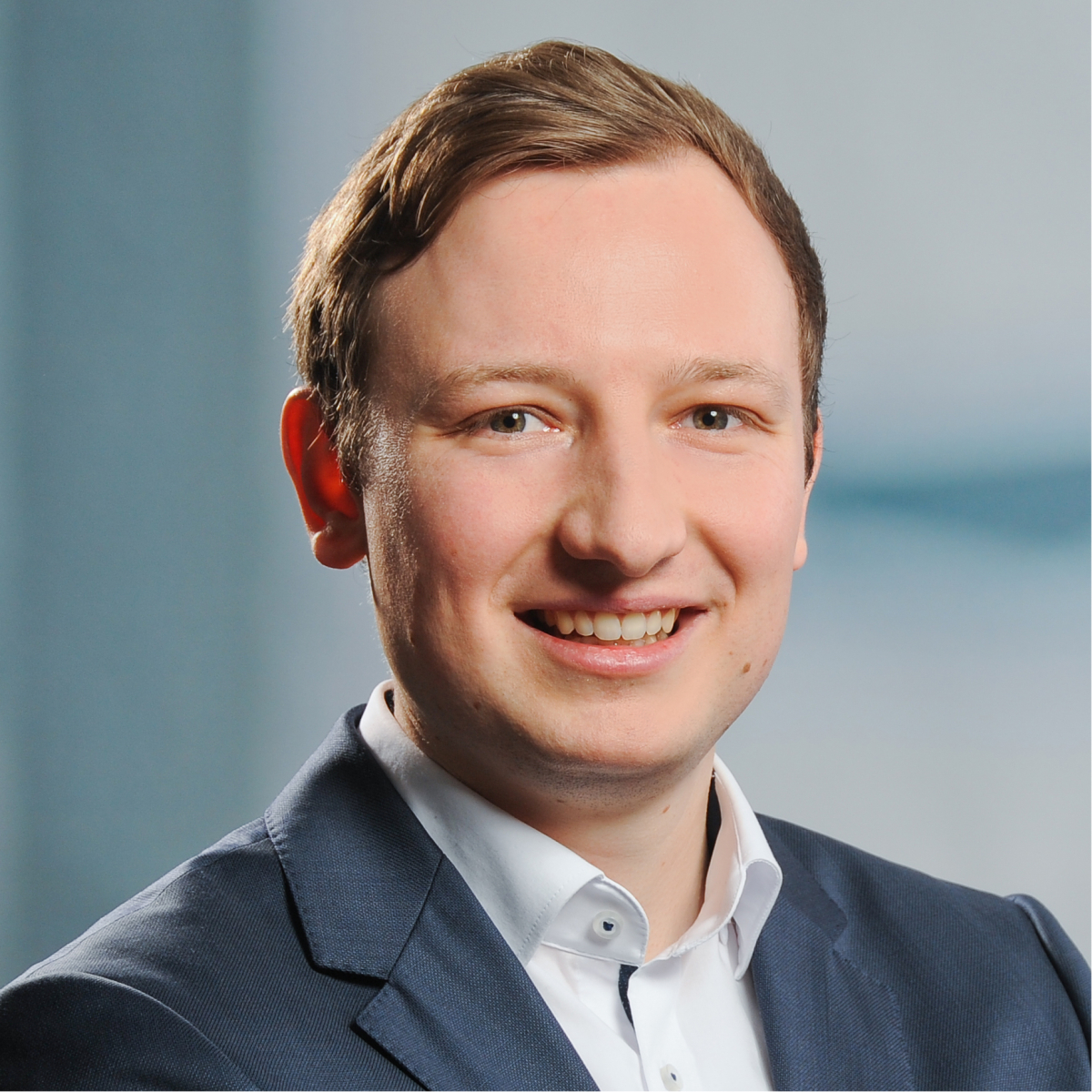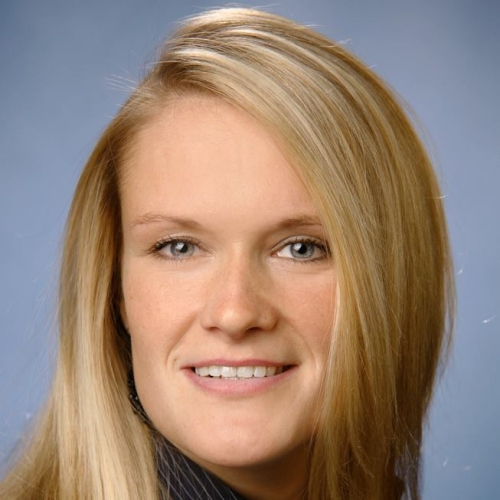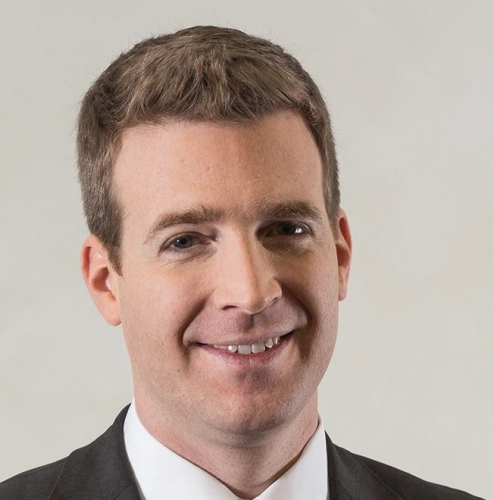
-
Dominik Lekse
 How do you think of your studying at the University of Münster?
How do you think of your studying at the University of Münster?I think it is accurately summed up in one sentence: I would choose to study at the University of Münster again. In no other stage of life are the created opportunities so diverse to me. I am especially grateful for the opportunity to have written my master's thesis as a research project abroad.
How did you start your career?
After completing my master's degree in Münster, I started working as an IT consultant for a Swedish IT consulting company at its Munich location. I got in touch with the company through a fellow student. I applied alongside my Master's thesis and, after several rounds of interviews both via video chat and on-site, signed the employment contract before graduation.
Do you have any tips for job applications and starting a career after graduation?
It is particularly helpful to build up a network outside the university world before starting a career. Many opportunities come from internships, studying abroad, attending conferences or job fairs, and taking part in university sports. Ideally, a job search starts by phone call or LinkedIn. Written application documents, if still necessary, become a formality. I still perceive the career perspectives for Information Systems graduates as excellent!
How have you perceived the different areas and types of business fields in which you have already worked?
As an employee of an IT consulting company, my role has a significant influence on the selection of projects and subject areas. The best performances require high motivation and self-interest. As a freelance consultant, self-responsibility for the acquisition of projects, the conclusion of contracts, as well as business management and taxation tasks are especially expected. A constant exchange with colleagues as well as continuous training is highly relevant, both as an employee and in the role of a freelance IT consultant.
What are your responsibilities in your current job? How does your day-to-day work look like?
I have been working as a freelance IT consultant for five years. In projects, I mainly create concepts for the architecture and operation of cloud-based IT infrastructures for new or existing applications of my customers. Furthermore, I develop software for demonstration purposes or as part of feasibility studies. The activities also include training for customers' employees or presentations at conferences. Mostly I work in a team in exchange with domain experts and developers of the respective customers. In summary, my job is to develop scalable solutions through creative and intelligent links to cloud services.
The daily work routine is varied, as the topics and industries change regularly with the customers. This requires constant adjustment to new situations and perspectives. Furthermore, technology is evolving rapidly, which creates new opportunities or cost advantages.
How did your studies prepare you for this work?
The specific tasks, problems, and topics that are relevant in my current work environment are different than what has been taught 10 years ago. However, this is not an accusation, as technology has developed rapidly over the past 10 years, especially in the cloud environment that did not exist "at that time".
Rather, the study has taught me to think analytically and to solve new problems through scientific and methodical work. Today, thanks to the Internet, the cost and time required to find relevant information are marginal. During my studies, I was trained to quickly identify connections of divergent problems and develop solutions from the identified situation.
What advice would you give to our current students?
The advice is meant to highlight possibilities rather than to give a "one-size-fits-all" guide to everyone.
Students should consider starting a business as part of a founding team either during or after their studies as an alternative to the traditional career path and actively explore this possibility. Information Systems studies offer the best prerequisites for implementing innovative and digital business models. The hurdles to taking this step appear higher than they actually are.
-
Dr. Andrea Dauterstedt
Consultant at LUNAR GmbH - Ein Unternehmen der EDEKA-Gruppe
 What do you do in your job?
What do you do in your job? I’m currently working as an “Agile Coach”. What does that mean? I help around 90 people to think and work using the “agile” method, rather than the “waterfall” method that has been primarily used for the last 10 years.
How did your studies prepare you for this work?
I learned about the SCRUM process as part of my studies – I experienced and tested it live as part of a project seminar. If I hadn’t had that experience I wouldn’t be able to coach others now. Another key insight I took from the program – and this is one of the things that was most helpful – was to always focus on structure. And last but not least, the business expertise, the SAP expertise and the SAP certification, thinking in data models, EPCs and so much more … all that is really useful in my every day work at the company!
What advice would you give to our current students?
With entering the job market in mind, I’d really recommend doing a lot of internships during the program. That makes it much easier to enter the job market and will also allow you to choose companies that you actually want to work for. Methods are great – but you also have to be able to apply them to specific issues!
-
Alexander Altenhofen
Head of Business Intelligence and Digital Analytics at DFL Digital Sports GmbH
 What does your job look like?
What does your job look like? For DFL Digital Sports - a subsidiary of the Deutsche Fußball Liga GmbH - I am responsible for the digital key figures of the Bundesliga products. As coaches and sparring partners, we help our colleagues in the daily use of the analytics tools, continuously optimize them and build a state-of-the-art IT infrastructure. This enables us and our partners to provide cross-channel, modern reporting and comprehensive analyses and forecasts.
How did your studies prepare you for your position?
My studies in Information Systems helped me to analyze problems, abstract them and then solve them efficiently. In addition, the broad professional training at the University of Münster and its excellent reputation provide an ideal stepping stone into the professional world.
What advice would you give current students?
Gain practical experience already during your studies and build up a network in an area that you are excited about. Practical work experience in a company is far more valuable than a good grade in an exam!
-
Dr. David Schüppler
Managing Director at L. Stroetmann Group
 What do you do in your current position?
What do you do in your current position?As a managing director the areas I am working in are broad. I deal with the IT of the company and take over the general organisation and implementation of projects. I also work in the fields of technology and logistics.
How did your studies prepare you for this work?
Studying Information Systems has given me a great deal of general knowledge in the areas of business administration and IT. Furthermore, I was able to acquire methodological skills.
What advice would you give our current students?
I couldn’t possibly give instructions on “how to be happy and/or successful”, because everyone has different ideas about what that personally means to them. But it helps me a lot and I find it fun to grapple with issues intensively and in great detail because only then it is possible to develop a deep understanding of an issue and eventually find good solutions.
-
Petra Finke
Managing Director & CIO at Rhenus Freight Logistics
 What do you do?
What do you do?I’m responsible for several areas in the Rhenus world. This includes IT processes, standards and quality. Operative transport network management also falls within my area of responsibility.
How did your studies prepare you for this work?
My studies at the University of Münster gave me a broad knowledge in the fields of business administration and IT. It also taught me early on to work independently.
What advice would you give to our current students?
My advice would be to get a lot of practical knowledge, have an international focus and develop a broad set of skills (not just SAP!). Good luck!
-
Daniel Beckmann
Senior Consultant, Human Resources Manager and Partner at BBHT Consulting Company mbH & Co. KG
 What are your tasks at work?
What are your tasks at work?As a management consultant, I work with our clients and plan their IT strategy and support them in implementing it, for example by taking over the project management or business analysis. In addition, I am in charge of the human resources department at BBHT and am committed to offering each employee an individual career path.
How did your studies prepare you for this position?
I consider my studies to be an ready-to-access "knowledge box" which I can use for my business activities. This background knowledge enables me to speak a common language with colleagues and to quickly familiarise myself with topics.
What advice would you give to current students?
In their role as employers, it is extremely helpful for students to gain practical experience at companies. In addition to their studies, internships in companies and stays abroad are a means of differentiation and may even be a unique selling point.
-
Dietmar Ahlemann
PwC
 What is your job?
What is your job?I’m a technology consulting partner, with a focus on the automobile industry. My area of expertise are IT strategy and transformation, digital business models, connected cars as well as autonomous cars.
How did your studies prepare you for this work?
For me, studying Information Systems was the perfect addition to my previous training as a banker. I have always been interested in IT and business ever since I was in school. The program was the perfect way to combine the business aspect with the IT side of things. It’s no surprise that I started working at a consulting company after graduation.
What advice would you give to our current students?
I highly recommend getting as much practical experience as possible while you’re still studying. That helps in particular to form an idea of where you want to go after you graduate. Because a degree in IS opens up so many possibilities – including software development, process or strategy consulting, or even founding your own start-up in the digital economy – I think it’s very important to have broad practical experience so you can make good career choices.
-
Katja Kümmel
CIO at Münster University Hospital (UKM) and Managing Director of UKM Beteiligungsverwaltungs GmbH
 What does your job entail?
What does your job entail?My area of responsibility is very diverse. Among other things, I deal with strategy development and the further development of the IT architecture. I also initiate strategic IT projects and bear the overall responsibility for them. This includes, for example, the introduction of electronic patient files, the data warehouse or e-recruiting. I take care of the restructuring of the division by defining responsibilities and standards in IT service management. In total, I am responsible for 85 employees. As managing director of UKM BV GmbH, I, furthermore, evaluate and support the spin-off projects of scientists and employees.
How did your studies prepare you for your job?
Studying Information Systems taught me to think structurally as well as how to take a "bird's eye view".
What advice would you give to our current students?
There are opportunities during the program such as gathering working experience that the students should carefully weigh up and potentially take advantage of. A lot is possible through good networking and the presentation of one's own work to the outside world.
-
Dr. Ralf Plattfaut
University of Applied Sciences Südwestfalen
 How did your studies prepare you for your current job?
How did your studies prepare you for your current job?The deep technological understanding and structured problem solving skills I gathered during my studies definitely help me in my current job. Especially the project seminars were a great way to experience and actively shape teamwork.
What would be your advice for current students?
Try to participate in extracurricular activities and keep a broad perspective. You will specialize early enough naturally.
-
Christian Dykstra
SAP consultant with a focus on Cloud for Customer at Bernard Krone Holding GmbH & Co. KG
What tasks does your job entail?
For the two business units Commercial Vehicles and Agricultural Machinery of the Bernard Krone Group, I am responsible for the worldwide introduction of SAP Cloud for Customer, a cloud-based CRM solution. To do this, I take up the requirements of the CRM-relevant departments Sales, Service and Marketing and adapt the solution according to their needs. This is done in close coordination with a service provider we employ. After the introduction of the solution, I take over the support of the specialist departments as well as the particularly important part of continuous improvement.
How did your studies prepare you for your job?
The most important soft skills for my job are strong communication, commitment, obtaining an overview and the ability to familiarize yourself quickly and independently with new issues. It is also essential to be a team player, i.e. to be able to deal with a wide variety of characters and to work together productively. Specialist knowledge plays a minor role in my job - but without the basic pillars of Information Systems - especially in the business area - I would not be able to work in my job! That is why I am thankful I was taught all these important aspects and skills during my studies.
What advice can you offer current students?
Hang in there and make an effort. It is worth it! IT is conquering the world at a rapid pace. Business IT specialists are therefore more in demand than ever. Be inspired by the people and places you encounter during your studies and make the best out of it. But also enjoy life. Nothing is worse than having a great job later in life but being unhappy.


